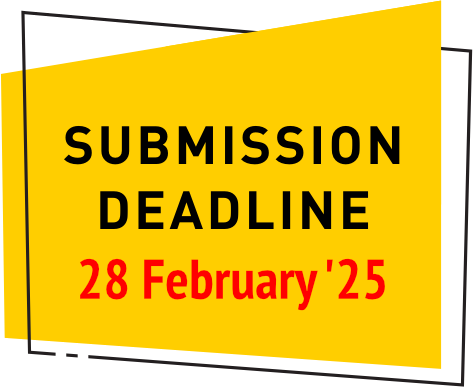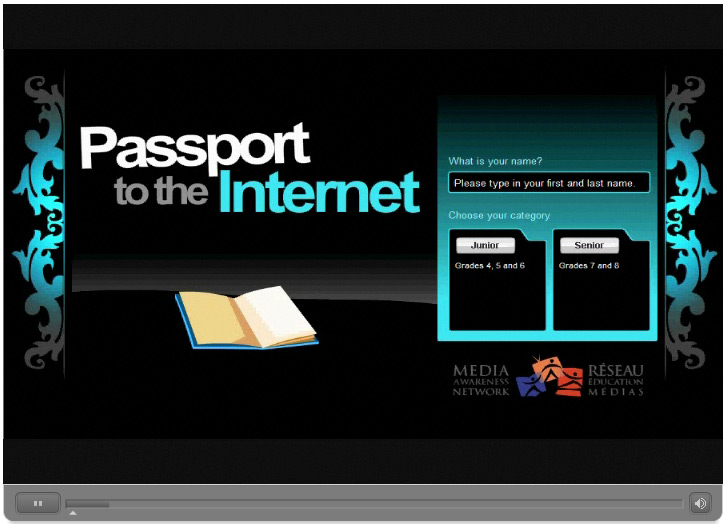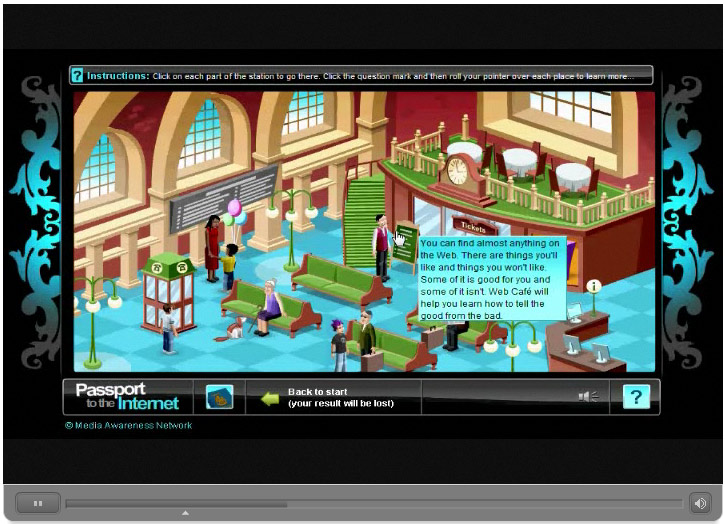Passport to the Internet
MEDEA 2009 Highly Commended
Passport to the Internet - the Student tutorial for Internet literacy (Grades 4-8) was created by the Media Smarts in Canada. It gives the opportunity for children to learn to do online activities in a secure environment. This e-learning tutorial is modular-based and these interactive modules are key to the Passport to the Internet approach: students learn by performing the actual tasks they do online - using a search engine, carrying on a conversation, creating a profile - as the interactive medium allows students to learn Internet literacy skills in authentic environments. The modules include:
- MyFace, a social networking site that challenges students to create an engaging profile while protecting their privacy;
- Co-Co’s Choco Match: a simulated advergame that teaches the “tricks of the trade” that online advertisers use to reach young consumers;
- Study Space: a research assignment that teaches authentication skills through a mock search engine and by having students judge the reliability of three different websites;
- Web Café: a general introduction to safe and wise web surfing that shows students how to judge what is behind a link, e-mail, banner ad or search result before clicking on it;
- Instant Pigeon: an instant messaging programme in which students engage in four conversations, allowing them to make ethical choices about how to reply to their online “buddies” and how to deal with issues such as uploading photos and videos, stranger contact and cyber bullying.
What the judges said of this entry:
“This application addresses the need to help young people become responsible and confident web users by giving them the practical knowledge and experience to cope. Players choose from a range of avatars and once the game is launched the user is presented with a host of rich media, where each task has its own interactive animated game while a friendly narrator helps the children throughout. The range of fun and easy to use interactive games is designed specifically for young people and they cover a lot of the main threats which can be present online. According to the judges, great effort has been taken with regard to language and kids’ behaviors on the Internet.
This is a well-documented and sophisticated resource which addresses a clear pedagogical objective, enhancing pupils’ online skills. It includes built-in self-evaluation, the materials give plenty of support and the function for teachers adds another dimension to this application; in short an excellent application, designed to help young people become safe surfers.”
About the creation of Passport to the Internet
Ann Marie Paquet, Communications Office at the Media Awareness Network in Canada speaks about the creation of this project: “Young Canadians are more connected than ever and they are connected at a surprisingly early age. Young Canadian’s in a Wired World research conducted by Media Awareness Network in 2005 indicated that 14 per cent of Grade 4 students are writing an online diary or blogs and by Grade 5, 40 per cent of young people are using instant messaging. Offensive content and risky situations on sites young people like to visit, their own concerns about privacy, and their questions about the authenticity of online information, gives rise to the need for engaging, interactive tools to help kids, in a developmentally appropriate manner, navigate the Net safely, wisely, and responsibly.
Our aim with Passport to the Internet was to create an interactive online tutorial for young users that enables them to use popular online tools and environments safely, responsibly and to their full potential. It also encourages them to develop the critical thinking skills they need to apply to their online experiences. Students learn key Internet literacy skills such as privacy management, search techniques and authentication tools, dealing with online ethical issues and recognizing and decoding Internet advertising. They also learn specific skills relating to common online environments such as social networking sites, instant messaging programmes, search engines and research sources and computer games.
Passport to the Internet targets students in Grades 4-8 and meets the media education and digital literacy learning outcomes in curricula across Canada. The materials may be used for a single session and may also be used multiple times, to measure students' progress in developing Internet literacy skills. The website also includes reinforcement activities and gives teachers the ability to track their students’ progress (the downloadable companion teacher’s guide offers background information, handouts and extension activities).”
Ann Marie mentions that or a full understanding of accessing and using the game, you can download the accompanying Teacher's Guide and Quick Start Guide which will be updated annually. Together, the interactive resource and the Teachers Guide form a comprehensive Internet literacy programme which can be customised to meet each individual teacher's needs, including lessons, backgrounders, handouts, warm-up and extension activities and evaluation materials.


